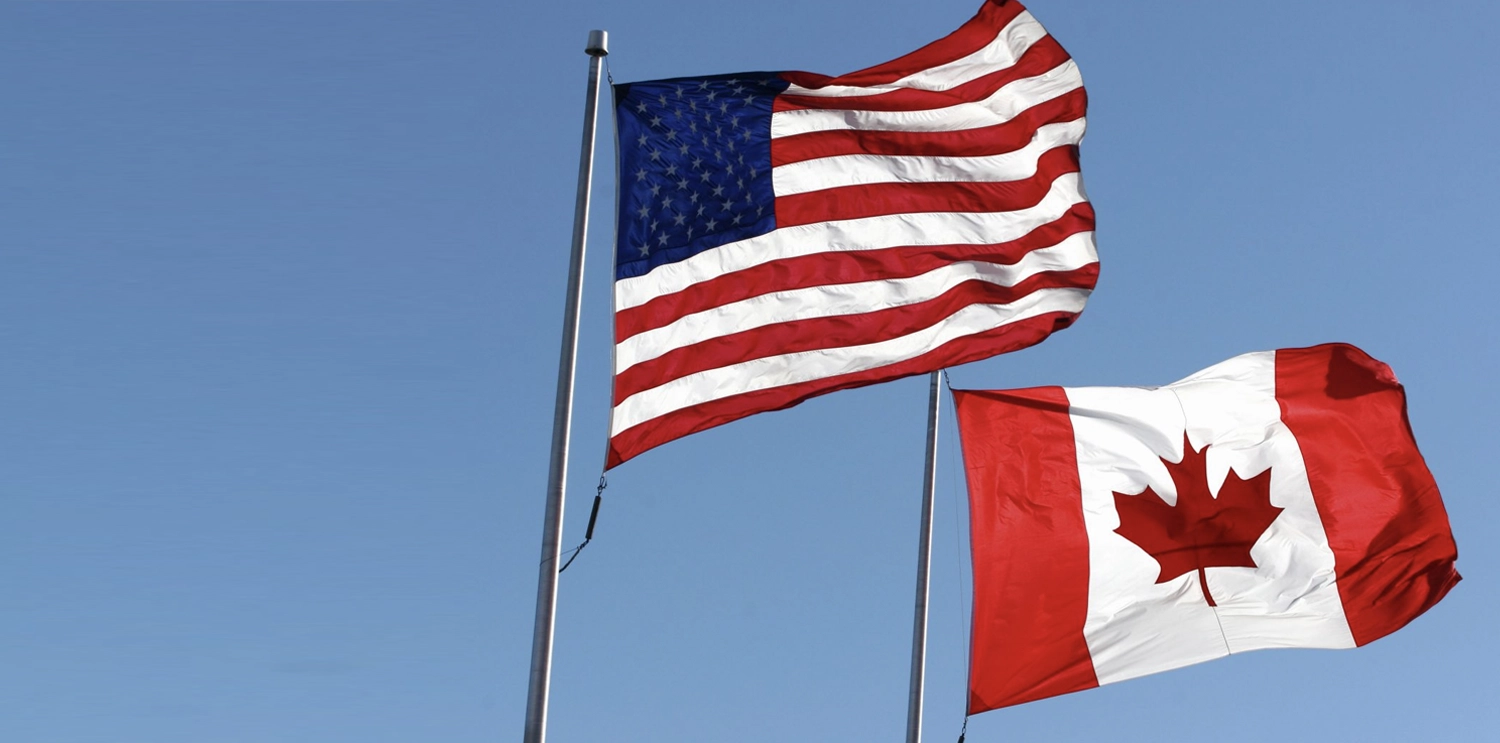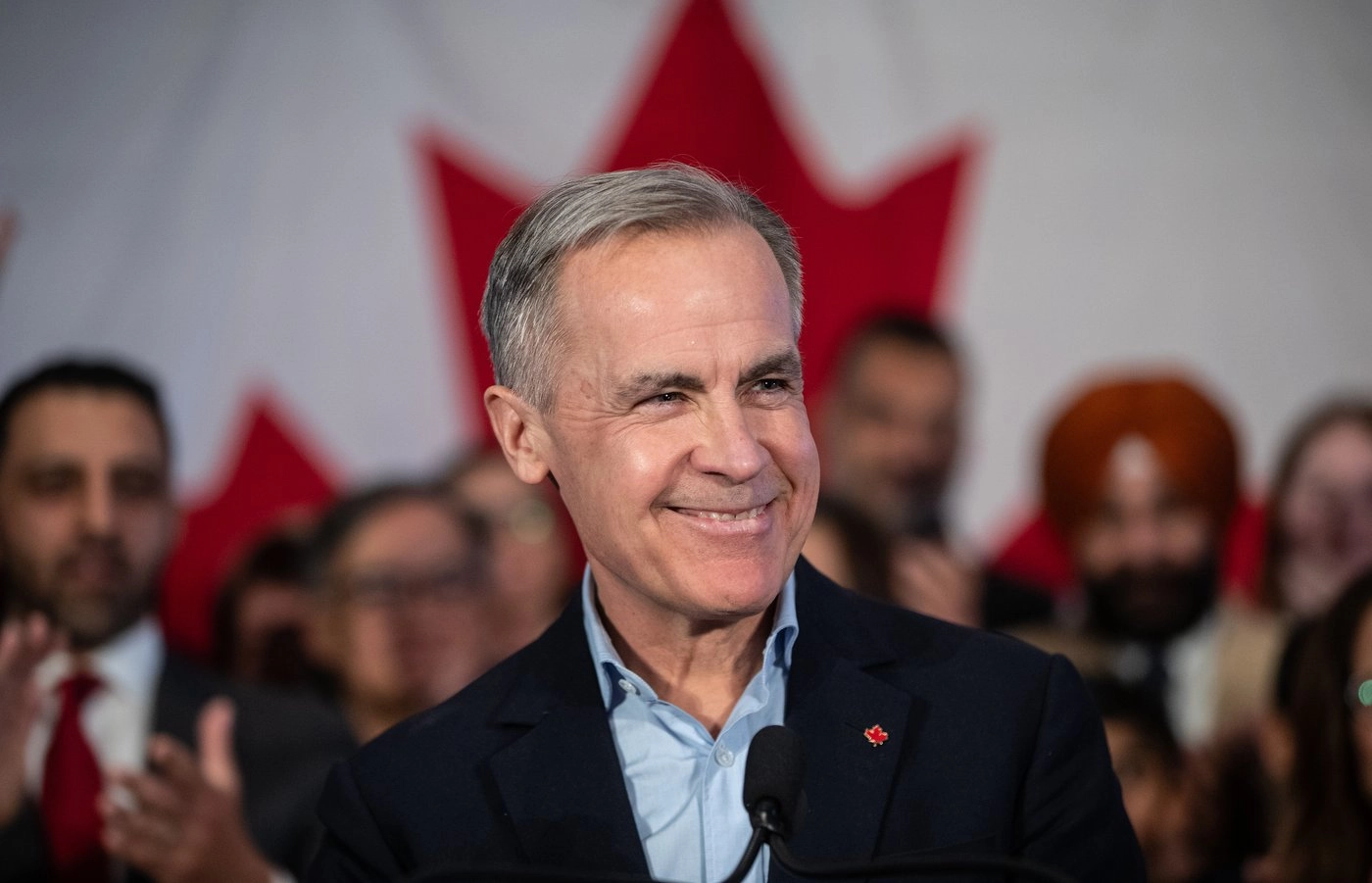Canada is at a turning point. Our relationship with the United States is shifting in ways that are reshaping our economy, our policies, and even our national identity. The pressures we face today are not just another cycle of political change or economic uncertainty. Certainly, they represent a fundamental transformation the way Canadians think and act.
At Angus Reid Group, we’ve been tracking these shifts in real-time and we are putting together a robust report on US-Canada relations. In the near term we’ve made a selection of key findings from that report available here. For information on how to access the full report, please connect with me directly. My email is below.
Three Forces Reshaping Canada
The implications of the data we’ve shared to-date are clear: Canadians are adjusting their priorities, reassessing their trust in leadership, and making economic choices that are as much political as they are financial. As a result, we see these challenges come to life across three key vectors:
• The Trump Factor: Disruption Without Borders
Former U.S. President Donald Trump’s influence continues to cast a long shadow. His policies—past and future—are injecting volatility into global markets and affecting trade, industry, and Canadian politics. Overall, the result is an environment where unpredictability has become the only certainty.
• Tariffs and Economic Instability: The Cost to Canadians
U.S. tariffs and protectionist policies are already affecting Canadian households and businesses. From rising costs in key sectors to uncertainty in supply chains, our research shows a growing public awareness of these economic pressures. Also, there is an increasing demand for self-sufficiency in energy and trade.
• Domestic Political Fractures: A Leadership Gap at a Critical Time
Canadians are losing confidence in their political institutions. Fragmentation and gridlock are leaving major economic and trade issues unresolved. Therefore, it is exposing the country to greater external risk. Public sentiment reflects a growing frustration with reactive leadership and the absence of a national strategy.
Citizen and Consumer: The New Convergence
To continue, Canadians are no longer separating their economic decisions from their national identity. Data has revealed that consumer behavior is becoming an expression of political and economic priorities. For instance, support for domestic energy projects, buying Canadian-made products, or the increasing belief that business leaders should take a stand on major issues.
Convergence isn’t hypothetical—it’s already shaping markets, policies, and brand loyalty. So, companies and policymakers who fail to recognize this shift risk losing relevance.
These aren’t isolated issues. In fact, they are interconnected forces shaping the choices Canadians make.
Recent data from the Angus Reid Institute reflects how public attitudes are evolving:
• Economic concerns are rising – Nearly twice as many Canadians now prioritize economic growth in energy policy decisions, compared to 18 months ago (43% in 2025 vs. 23% in 2023).
• Support for domestic energy is growing – Backing for the Energy East pipeline has risen from 58% in 2019 to 65% in 2025, signaling a push for energy independence.
• National pride is strengthening – In the face of external challenges, 44% of Canadians now say they are “very proud” of their country. This is up 10 points from December 2024.
• Political strategy is under scrutiny – More than half (51%) believe that public discussion of Canada’s vulnerabilities could weaken our position in negotiations with the U.S.
As we track these shifts one thing is becoming clear: economic choices are no longer just financial—they are political. Most importantly, the line between consumer behavior and national identity is blurring. So, businesses that fail to recognize the risk of falling out of step with the people they serve.
This is why, at Angus Reid Group, we are exploring what these trends mean for the country’s future. How will businesses adapt to a consumer base that increasingly views spending as a statement? What risks do policymakers need to anticipate? Finally, where can leaders find common ground in an increasingly polarized environment?
Get Started Reading
Looking to get a sense of the insights and data we’re collecting? I invite you to view a selection of our key insights from our in-depth report “Navigating Canada-US relations: Tariffs, economic independence and sovereignty: Where to next?”
While this is just a selection of key findings, the full report goes much deeper, and I would be pleased to discuss how you can access the more robust insights. Please do not hesitate to contact me at Jennifer.birch@angusreid.com.
Recommended
Web Summit Vancouver; Brands in uncertain times.
Recently, the CEO of his namesake company, the Angus Reid Group, took centre stage at the Vancouver Web Summit with the Global CEO of FCB, Tyler Turnbull. On the docket? Insights from their groundbreaking joint Citizen Consumer Research Study. What started as a...
The Moderators Takeaways: Brands in Uncertain Times: The Citizen Consumer Webinar
Trust and optimism used to rise and fall with the political tides. Not anymore. Both it seems have washed out to see. Our latest research reveals that a strong majority of Canadians and Americans no longer have confidence in their system of government. Nearly half of...
Angus Reid Institute’s election projections are a statistical bullseye
As votes were counted in this week’s federal election, one thing became clear: the Angus Reid Institute’s polling program delivered one of the most accurate forecasts of the campaign—not just nationally, but provincially, too. Their final projection had the Liberals...
Shachi Kurl puts Canada’s new PM on notice in the New York Times
In case you missed it, Shachi Kurl—President of the Angus Reid Institute—penned a must-read piece in The New York Times this week about Canada’s surprising federal election outcome and the challenges now facing new Prime Minister Mark Carney. You can read it here: The...










